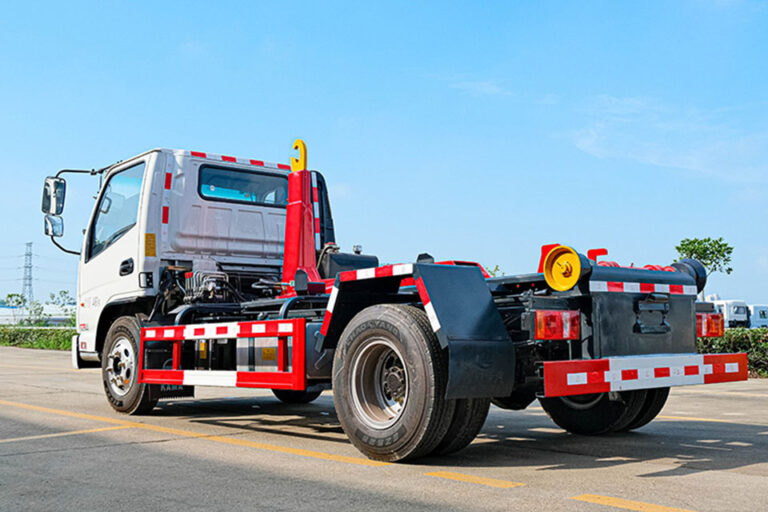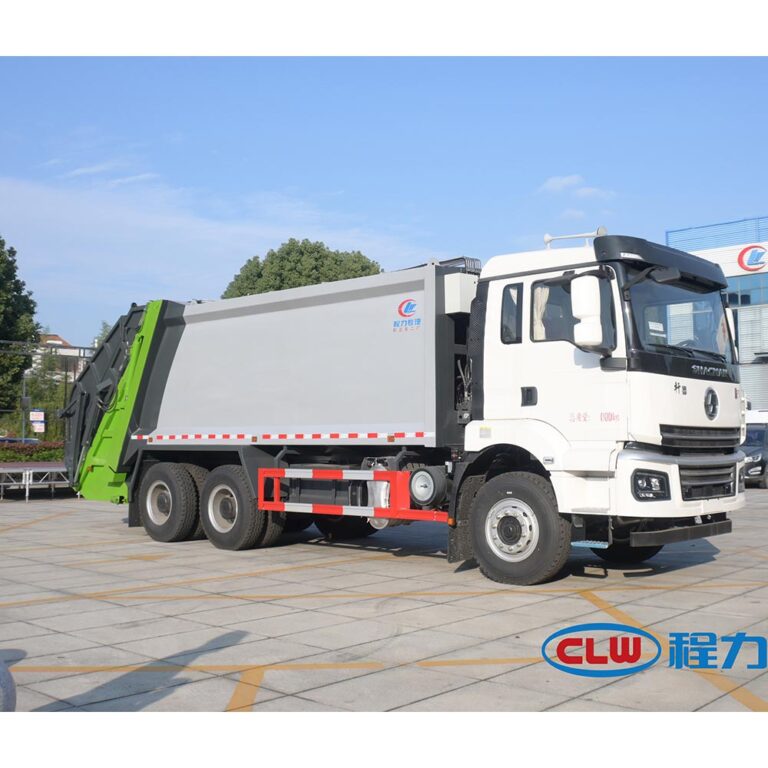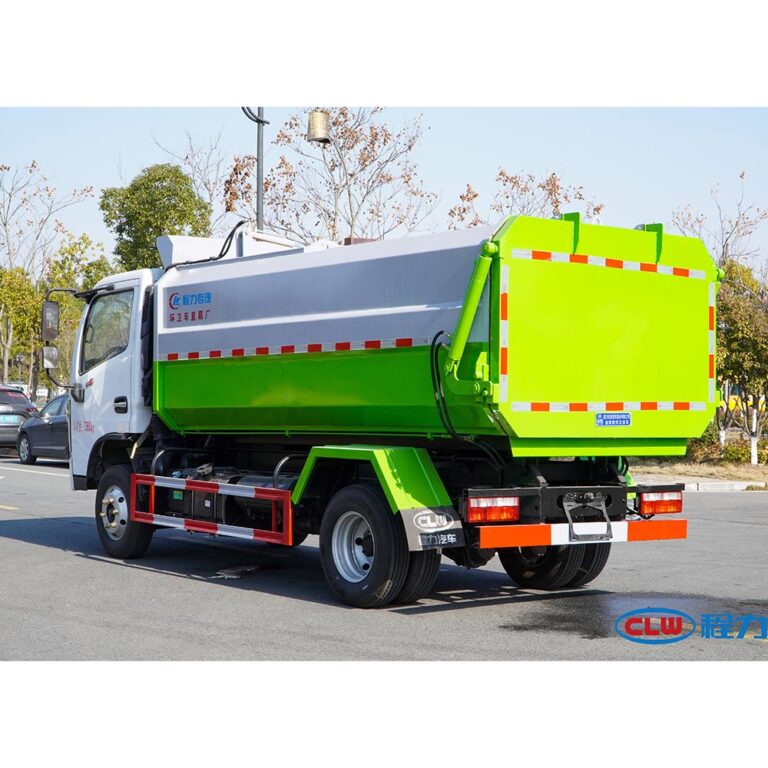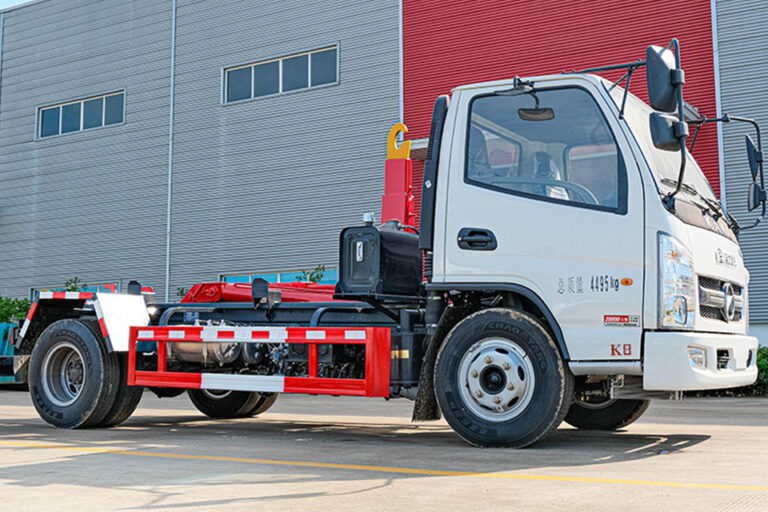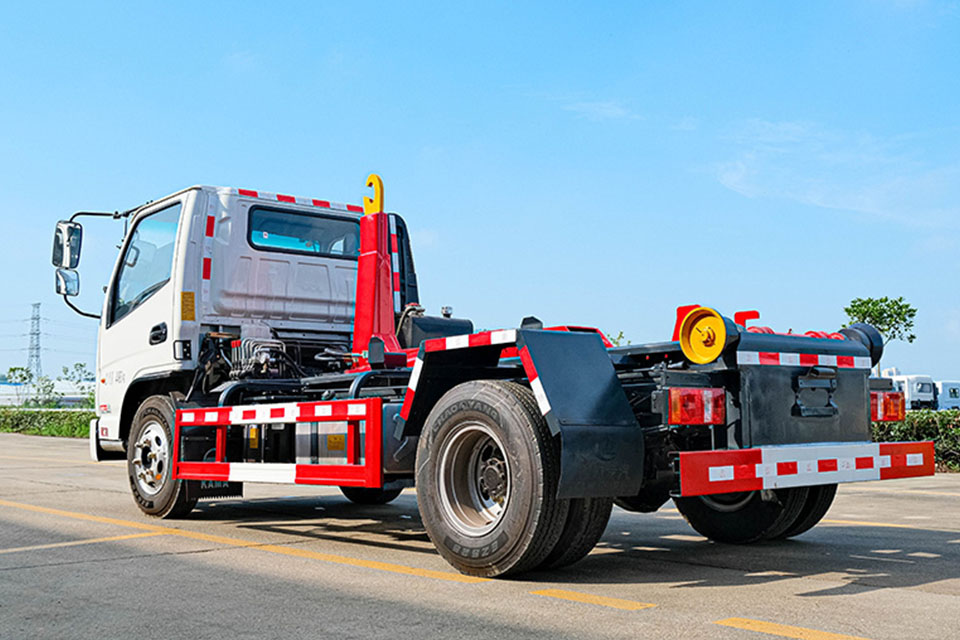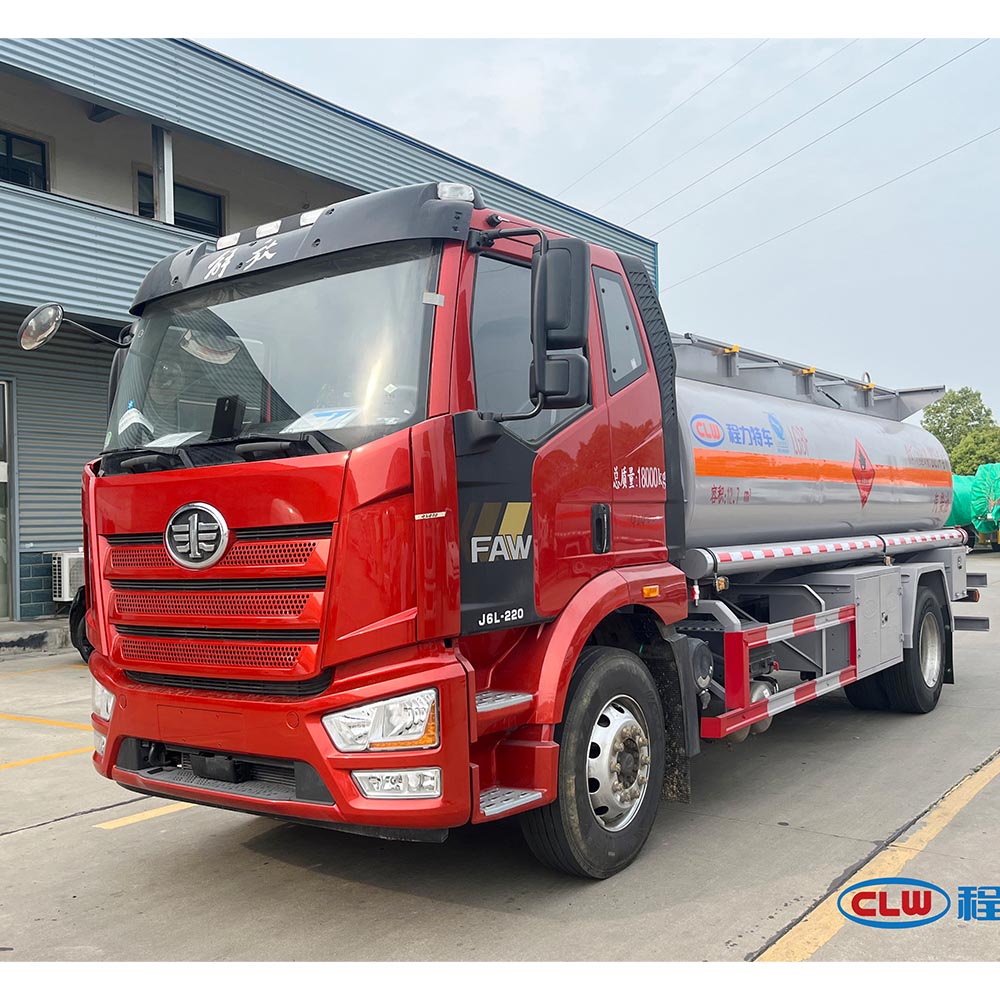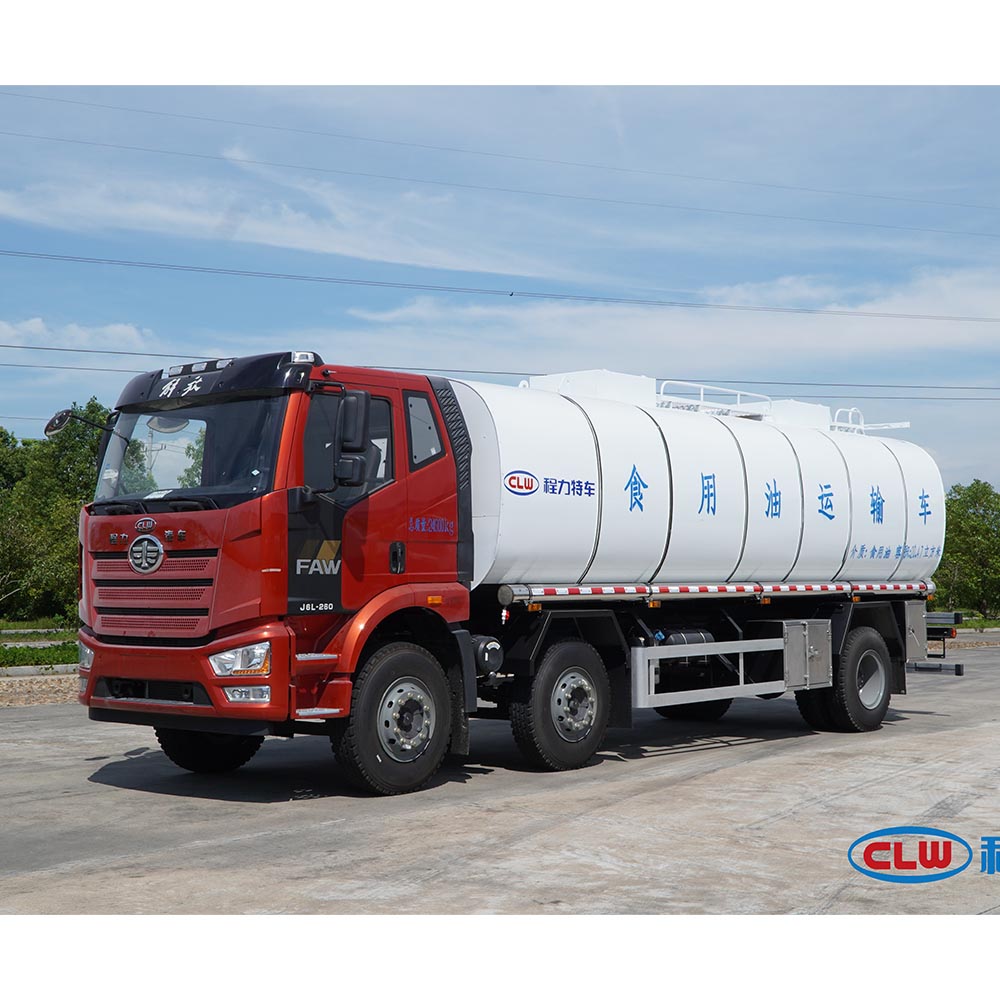-
Автомобильный промышленный парк Чэнли

что такое алюминиевая цистерна
Окончательное руководство по алюминиевым танкерам: Эффективность заправки и безопасность перевозок
Вы находитесь в поиске долговечного, эффективного и безопасного решения для транспортировки жидкостей? В этом руководстве мы погрузимся в мир алюминиевых цистерн и объясним, почему они являются лучшим выбором для различных отраслей промышленности. Мы рассмотрим преимущества алюминия перед традиционными материалами, обсудим различные типы прицепы-цистерныи ответит на все ваши насущные вопросы. Узнайте, как алюминиевые цистерны могут революционизировать вашу деятельность, снизить затраты и повысить безопасность.
Оглавление
1. Почему стоит выбрать Алюминиевый прицеп-цистерна За сталь?
Как завод по производству алюминиевых цистерн, мы часто сталкиваемся с вопросом: "Почему лучше выбрать алюминий, чем сталь?". Ответ кроется в уникальных свойствах алюминий. Прежде всего, алюминий значительно легче, чем углеродистая стальЧасто на 4 тонны легче, чем аналогичные конструкции из углеродистой стали. Такое снижение веса напрямую приводит к повышению топливной эффективности. При перевозке тяжелых грузов расход топлива может стать одной из самых больших статей расходов. Выбор алюминий танкер означает сокращение стоимость топливаЭкономия денег в течение срок службы автомобиля. Снижение веса также означает уменьшение износ шин при транспортировкечто еще больше снижает эксплуатационные расходы.
Еще одним важнейшим фактором является коррозионная стойкость. В отличие от углеродистая стальОн подвержен ржавчине и коррозии, алюминий естественным образом образует защитный слой, который препятствует разрушению. Это делает танкеры из алюминиевого сплава Идеально подходит для транспортировки различных жидкостей, в том числе агрессивных химическая жидкостьи обеспечивает более длительный срок службы срок службыособенно в суровых погодных условиях или при использовании материалов, которые в противном случае могут привести к проблемам. Кроме того, поскольку нефтепродукты легко воспламеняются, имеющий танкер которые не ржавеют и не ржавеют, имеет решающее значение для безопасности. Выбор алюминий прицеп-цистерна Это означает меньшее время простоя на ремонте и более надежный автомобиль, что повышает эффективность работы всех наших клиентов в сфере транспорта и логистики.
2. Каковы основные преимущества Алюминиевый сплав в строительстве танкеров?
Использование алюминиевый сплав в танкер конструкция выходит за рамки простого снижения веса и коррозионная стойкость. Когда мы говорим о алюминий для танкерымы имеем в виду алюминиевый сплав. Почему алюминиевый сплав вместо чистого алюминий? Ну, это потому, что алюминиевый сплав сочетает в себе свойства алюминий с другими элементами, что повышает его прочность и долговечность.
Плотность алюминиевый сплав меньше, что позволяет нам создать корпус бака Он отличается повышенной прочностью при минимальном весе. Это означает, что бак из алюминиевого сплава выдерживает нагрузки ежедневного использования, включая износ при транспортировке, что делает топливозаправщик из алюминиевого сплава чрезвычайно безопасны и практичны. Превосходное соотношение прочности и веса алюминиевый сплав делает его идеальным для танкеры всех форм и размеров. Мы можем создавать большие прицепы-цистерны которые позволяют перевозить большие объемы без увеличения веса транспортного средства. Это очень важно для отраслей, где требуется эффективная транспортировка больших объемов жидкостей или сыпучих материалов. Эти свойства делают использование алюминиевого сплава первостепенной важности.
3. Как облегчить вес Алюминиевые танкеры Воздействие Расход топлива?
Взаимосвязь между весом и расход топлива является основополагающим в транспортной отрасли. Каждый фунт, сэкономленный на весе автомобиля, приводит к экономии топлива. Вот как облегчение веса алюминий прицепы-цистерны значительно влияет на расход топлива:
Во-первых, в алюминиевый бак на 4 тонны легче, чем аналогичные конструкции из углеродистой стали, что снижает общий вес автомобиля, а значит, уменьшает усилия двигателя для его перемещения. Это особенно полезно, когда перевозка сырой нефти или других тяжелых жидкостей. Меньше работы для двигателя означает меньшее количество сжигаемого топлива, что напрямую снижает эксплуатационные расходы. стоимость топлива. Во-вторых, при уменьшении веса грузовику требуется меньше энергии для движения, что снижает износ при транспортировке и таким образом уменьшает износ шин при транспортировке. Такая комбинация экономии напрямую влияет на итоговый результат. Как алюминиевая цистерна Производитель, мы понимаем, как скажется эта экономия.
Кроме того, благодаря снижению веса увеличивается грузоподъемность, что позволяет повысить вместимость и сократить количество рейсов, необходимых для доставки. Это особенно важно для предприятий, работающих с нефтепродукты которые требуют быстрой и эффективной транспортировки. Использование легкий вес алюминия является решающим фактором. Меньший вес также позволяет улучшить управляемость и торможение, что повышает безопасность и снижает вероятность аварий. Одним словом, переход на алюминий приводит к значительной экономии по сравнению с срок службы из танкер.
4. Какие типы жидкостей можно безопасно перевозить в автомобиле Алюминиевая топливная цистерна?
Алюминий танкеры Они очень универсальны, и вы можете спросить себя, можно ли безопасно перевозить мой продукт? Да, хорошая новость заключается в том, что они подходят для транспортировки широкого спектра жидкостей. Их коррозионная стойкость делает их идеальными для различных химическая жидкость а также нефтепродукты и даже, топливо. Алюминий танкеры часто используются для транспортировки бензина, дизельного и других видов топлива. Благодаря своей нереактивной природе алюминий Обеспечивает чистоту транспортируемого продукта, что очень важно для отраслей, где загрязнение является серьезной проблемой.
В них можно безопасно перевозить различные промышленные жидкости, например, некоррозионные химикаты, а также различные пищевые продукты и другие чувствительные материалы, требующие контроля температуры. Внутреннее пространство алюминиевый бак могут быть облицованы для предотвращения передачи вкусов и запахов, что делает их пригодными для транспортировки пищевых продуктов. При надлежащей изоляции и конструкции, алюминиевые танкеры можно безопасно перевозить чувствительные материалы, которые должны храниться при точных температурах. Дополнительно, топливозаправщик из алюминиевого сплава обеспечивают прочную и надежную транспортировку как жидких, так и сухих сыпучих материалов.
5. Как Алюминиевая цистерна Строительство влияет на безопасность?
Безопасность - первостепенная задача при транспортировке жидкостей, особенно нефтепродукты легко воспламеняются и другой взрывоопасные грузы. Проектирование и строительство алюминий танкер играют решающую роль в обеспечении безопасности перевозок. Высокая прочность на разрыв алюминиевый сплав делает для корпус бака прочный и устойчивый к ударам и нагрузкам, снижающий риск разрывов при транспортировке. Эти характеристики чрезвычайно важны, поскольку нефтепродукты подвержены При неправильном обращении может вызвать серьезные проблемы.
Свойственные материалу коррозионная стойкость также играет важную роль в обеспечении безопасности, поскольку ржавчина и коррозия в стали танкеры может привести к деградации материала и увеличению риска разрушения, что часто происходит в обычных нефтяных резервуары. Алюминиевые танкеры Сохраняют свою структурную целостность в течение длительного времени, даже когда подвергаются воздействию стихий, и обеспечивают высокий уровень защиты для водителей. Они легче, чем аналогичные углеродистая сталь Это делает их более удобными в обращении и менее подверженными авариям при переворачивании. Кроме того, конструкция алюминий танкер будет усилена дополнительными мерами безопасности, такими как аварийные запорные клапаны. Когда вы имеете дело с продукты огнеопасны и взрывоопасны, безопасность является важным фактор и выбор алюминий танкер имеет большое значение.
6. Как Алюминий Повлияйте на Корпус резервуара Долговечность и Срок службы?
Когда мы говорим о срок службыДолговечность вашего корпус бака очень важна для обеспечения надежности вашего автомобиля. Алюминий обладает замечательными свойствами, которые в значительной степени способствуют долговечности автомобиля. Его естественная устойчивость к коррозия значительно превосходит углеродистая сталь. Эта устойчивость предотвращает деградацию кузов цистерныДаже при воздействии суровых погодных условий, различных химикатов или соленой воды. Материал также устойчив к ржавчине и окислению, которые могут нарушить структурную целостность автомобиля.
Вследствие уменьшения коррозии алюминий танкер имеет расширенный срок службы. Это означает меньшее количество ремонтов и простоев, что способствует долгосрочной экономии средств. Прочность алюминиевый сплав предоставляет корпус бака с хорошим удлинением и высокой прочностью, которая гораздо меньше подвержена растрескиванию или деформации при ежедневном использовании. Гибкость алюминий Это значит, что он лучше переносит удары и нагрузки. При надлежащем уходе вы можете рассчитывать на алюминий танкер чтобы обеспечить долговечность других материалов и надежное решение для ваших транспортных нужд. Длинный срок службы алюминиевого сплава часто является одной из главных причин, по которой он используется в производстве танкеры.
7. Какие существуют распространенные виды Алюминиевая цистерна Дизайны?
Мир алюминий танкеры не является универсальной. Она разрабатывается с учетом различных операционных потребностей. Давайте рассмотрим некоторые из распространенных типов, которые мы производим:
- Прицепы-цистерны для перевозки топлива: Они предназначены для безопасной транспортировки топлива и имеют различную вместимость, отвечающую самым разным требованиям. Эти прицепы-цистерны оснащены защитными элементами, предотвращающими разливы и протечки. Часто они встречаются у 3 ось конфигурации для оптимального распределения веса.
- Химические танкеры: Как правило, они оснащены специальными вкладышами и материалами, противостоящими коррозионному воздействию различных химических веществ, что делает их идеальными для работы с широким спектром химические жидкости. Материал и сварка Техника очень важна для этих полуприцеп-цистерна.
- Танкеры для перевозки пищевых продуктов: Эти танкеры изготовлены из пищевых материалов и предназначены для поддержания чистоты потребляемых жидкостей. Внутренние поверхности отполированы и легко очищаются для предотвращения загрязнения. Эти полуприцеп-цистерна разработаны с учетом уникальных стандартов, предъявляемых к данному виду перевозок.
- Сухогрузные танкеры: Также называется порошком танкерОни используются для транспортировки сухих материалов, таких как порошки, зерно и цемент. Они имеют специальную конструкцию для погрузки и разгрузки сухих грузов. Они отличаются от обычных полуприцеп конструкции.
Конкретный дизайн алюминий танкер зависит от типа материала, который необходимо транспортировать, а также от конкретной отрасли, в которой используется транспортное средство. танкер. Каждая конструкция оптимизирована с точки зрения эффективности и безопасности.
8. Каковы последствия инвестирования в Цистерна из алюминиевого сплава?
Многие клиенты спрашивают о расходах, связанных с инвестированием в цистерна из алюминиевого сплава И дело не только в цене. Хотя первоначальные инвестиции в цистерна из алюминиевого сплава может быть выше, чем у сопоставимой стали. танкерНо важно учитывать и долгосрочные финансовые выгоды. Снижение веса приводит к значительной экономии стоимость топлива со временем. Длительный срок службы и неприхотливость в обслуживании означают, что в течение всего срока службы автомобиля вам потребуется меньше ремонтов и замен. Эта экономия быстро компенсирует более высокую первоначальную стоимость.
Сайт алюминий Сам материал, хотя и дорогой, поможет сохранить ценность прицеп. Нижний расход топливауменьшение затрат на обслуживание и более длительный срок службы срок службы все это будет способствовать повышению стоимости при перепродаже в будущем. Эта экономия, если рассматривать ее в совокупности, показывает, что инвестирование в алюминий танкер это разумное финансовое решение для вашего бизнеса. Оно обеспечивает долгосрочную ценность и помогает снизить общую стоимость владения. Делая инвестиции, всегда учитывайте как краткосрочные, так и долгосрочные финансовые последствия.
9. Как использование алюминиевого сплава влияет на ежедневные расходы на эксплуатацию и техническое обслуживание?
Влияние использования алюминиевый сплав на ежедневные расходы на эксплуатацию и техническое обслуживание является одной из основных причин роста его популярности в танкер промышленность. Прежде всего, благодаря меньшему весу алюминий танкеры напрямую снижает расход топлива что приводит к снижению стоимость топлива. Это одна из самых непосредственных и постоянных экономий, которую ощущают владельцы. Кроме того, снижение износа автомобиля означает уменьшение количества поломок и необходимости технического обслуживания.
Еще одним фактором является длительный срок службы из алюминий танкер. Он значительно более устойчив к коррозия чем сталь, что предотвращает многие из распространенных проблем, требующих дорогостоящего ремонта на стальной резервуар агрегаты. Поскольку они не подвержены ржавчине, это также помогает снизить расходы на ежедневное обслуживание. Кроме того, повышенная долговечность алюминий означает меньшее количество замен корпус бака компоненты над срок службы автомобиля. Сокращение количества как крупных, так и мелких ремонтов ведет к уменьшению времени простоя, обеспечивая бесперебойную работу вашего предприятия. Такая экономия напрямую влияет на конечный результат.
10. Как разные Сварка Техника воздействия на Алюминиевые танкеры долголетие?
Сайт сварка Процесс является критически важным при производстве алюминий танкер. Правильная сварка необходима для обеспечения прочности, износостойкости и долговечности танкерЭто одна из наших главных задач. Существует несколько различных техник, которые часто используются на алюминиевый сплав структур, и каждый тип имеет свои преимущества. Хороший сварка гарантирует, что корпус бака конструктивно прочный, герметичный и способный выдержать суровые условия ежедневной транспортировки. Некачественный сваркаС другой стороны, это приведет к проблемам в краткосрочной перспективе.
Конкретный сварка техника будет зависеть от алюминий материал используемого материала, толщины панелей и специфических требований танкер. Различные сварка В число методов входят MIG-сварка, TIG-сварка и сварка трением с перемешиванием, и каждый из них имеет свои преимущества. Например, MIG-сварка отличается высокой скоростью и подходит для применения в общих целях, а TIG-сварка - более точный процесс, используемый для получения высококачественных швов, способных выдерживать нагрузки. В любом случае, каждый процесс требует специальных навыков и правильного оборудования, которые должны выполняться опытными сварщиками, чтобы избежать проблем в долгосрочной перспективе. Это наша обязанность как алюминий танкер завод-изготовитель, чтобы стать экспертом в этой области.
11. . Алюминиевые прицепы-цистерны Хорошая инвестиция для моего бизнеса?
Определение того, является ли алюминий прицеп-цистерна является хорошей инвестицией, зависит от ваших конкретных бизнес-потребностей и операционных целей. Если ваш бизнес связан с транспортировкой жидкостей, особенно нефтепродукты или других материалов, требующих коррозионной стойкости и высоких стандартов безопасности, то ответ почти всегда будет положительным. Первоначальная стоимость цистерна из алюминиевого сплава может показаться высокой, но долгосрочные преимущества весьма существенны. Экономия топлива, снижение затрат на обслуживание, увеличение срока службы и повышение безопасности быстро компенсируют первоначальные инвестиции.
Рассмотрим уменьшенный расход топлива которые обеспечивает более легкий автомобиль. Уменьшенный расход топлива и износ шинЭто также влияет на то, как быстро окупятся ваши инвестиции. Если вы занимаетесь транспортировка сырой нефти, an цистерна из алюминиевого сплава это правильный выбор, поскольку он повысит безопасность и снизит общие затраты. Кроме того, они являются универсальным решением для различных отраслей промышленности, включая транспортировку химическая жидкость. Если вы уделяете основное внимание эффективности, безопасности и долгосрочному снижению затрат, то алюминий танкер станет ценным дополнением к вашему автопарку.
12. Как изменяется цена на Новые и подержанные Сравнение алюминиевых танкеров?
При рассмотрении вопроса о покупке алюминий танкерБюджет часто является важным фактором, и вы можете задаться вопросом о разнице в цене между новые и подержанные модели. Новый алюминий танкеры оснащены новейшими функциями, технологиями и возможностями настройки в соответствии с конкретными потребностями покупателя. Они поставляются с полной гарантией, что дает новому владельцу душевное спокойствие и позволяет планировать срок службы автомобиля, но они также имеют более высокую начальную стоимость.
С другой стороны, используется алюминий танкеры Они могут стоить дешевле, но при этом нести в себе риск дополнительного обслуживания. A используется танкер может быть более экономичным в краткосрочной перспективе, но потребует должного внимания при проверке на предмет прошлого использования и износа. Очень важно проверить историю используется танкер прежде чем совершить покупку. Выбор новый Модель предлагает преимущества лучшей настройки, более современные функции и гарантию, в то время как используется При тщательной проверке модель может стать бюджетным вариантом.

Вопросы и ответы
Каков типичный срок службы алюминиевых цистерн?
При надлежащем уходе алюминий танкер может прослужить 15-20 лет или даже больше, что делает его очень выгодным долгосрочным вложением.
Безопасны ли алюминиевые цистерны для перевозки легковоспламеняющихся материалов?
Да, алюминий танкеры специально разработаны с учетом требований безопасности для транспортировки легковоспламеняющиеся и взрывоопасные грузыОни часто оснащены системой безопасности для предотвращения разливов, утечек и других несчастных случаев. Они обычно используются для перевозки бензина и дизельного топлива.
Чем алюминий отличается от нержавеющей стали для танкеров?
Хотя оба нержавеющая сталь и алюминий предлагайте преимущества, алюминий легче и больше коррозия устойчивы к внешним воздействиям, а также стоят дешевле. Нержавеющая сталь может быть более долговечным в некоторых областях применения, но и цена его гораздо выше.
Могут ли алюминиевые цистерны быть изготовлены по индивидуальному заказу?
Да, алюминий танкеры В соответствии с конкретными требованиями, размер, конфигурация и добавление специализированного оборудования для различных отраслей промышленности могут быть изменены различными способами.
Какое техническое обслуживание требуется для алюминиевых цистерн?
Алюминий танкеры требуют регулярных осмотров, чистки и проверок сварка на предмет повреждений. Однако, как правило, они требуют меньшего ухода, чем углеродистая сталь танкеры благодаря присущей им устойчивости к коррозии и ржавчине.
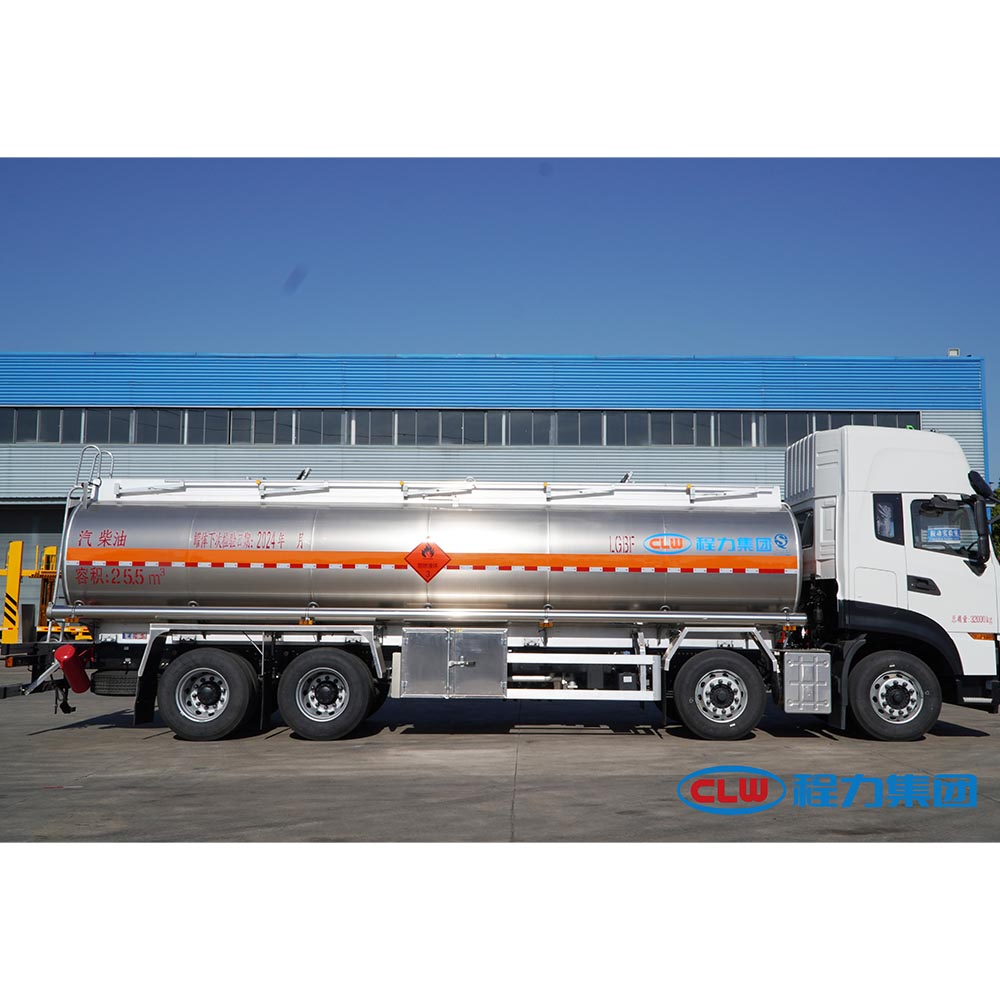
Резюме
- Алюминий значительно легче стали, что снижает расход топлива и износ шин.
- Алюминиевый сплав обеспечивает превосходную прочность и коррозионная стойкость.
- Алюминий танкеры Они универсальны и могут транспортировать различные жидкости, в том числе нефтепродукты, и химическая жидкостьПри этом обеспечивается высочайший уровень безопасности.
- Инвестиции в алюминий танкер позволяет экономить средства в долгосрочной перспективе благодаря длительному сроку службы срок службы и сократить расходы на обслуживание.
- Правильно сварка Методы необходимы для обеспечения целостности и безопасности алюминий танкер.
- Алюминий танкеры это отличная инвестиция для предприятий, стремящихся к эффективности, безопасности и долгосрочной выгоде.
Если вы находитесь на рынке новых или подержанных алюминиевых автоцистерн, мы готовы вам помочь. Свяжитесь с нами сегодня, чтобы изучить ваши возможности и узнать, как алюминий танкер может произвести революцию в вашем бизнесе.
Посмотрите другие наши товары:
- Ищете надежное решение для тяжелых материалов? Посмотрите наш Грузовик-цистерна для песка для гидроразрыва пласта вместимостью 31 000 кг для превосходной производительности.
- Нужна надежная утилизация отходов? Наш Мусоровоз Chengli грейферного типа является эффективным вариантом.
- Чтобы найти экологичные решения, ознакомьтесь с нашими Электрический мусоровоз которая предлагает экологичный подход к сбору отходов.
- Для специализированных перевозок рассмотрите наши Транспортное средство для перевозки легковоспламеняющихся газов разработаны для обеспечения безопасности и надежности.
- Обеспечьте эффективное обслуживание дорог с помощью нашего Автомобиль для обслуживания дорожных покрытий - двигатель DAM16KR.
- Наконец, если вам нужна перевозка сыпучих материалов, обратите внимание на нашу компанию Грузовик для перевозки сыпучих кормов Dongfeng Huashen

